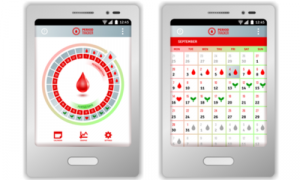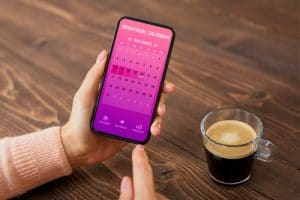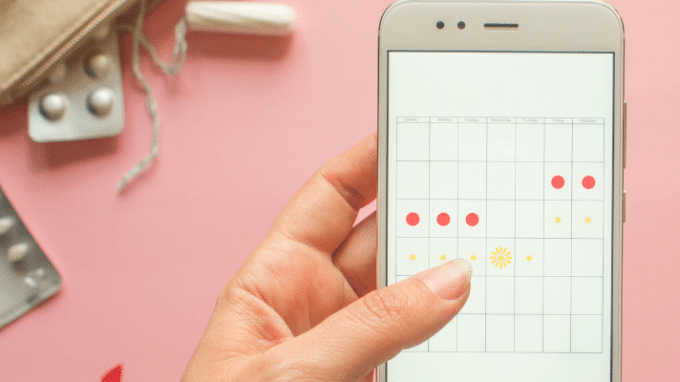In recent years, fertility-tracking apps have grown popular among women. However, they may be storing and sharing too much information.
These apps can certainly help women who are looking to get pregnant, as well as those who want to manage a pregnancy, avoid getting pregnant or simply know more about their own bodies. Unfortunately, the apps also collect and share sensitive personal information without the user’s knowledge or consent. Private information is being shared, which should make you wary if you use fertility-tracking apps.
What Is Critical About Fertility Data?
Around the world, millions of women use fertility-tracking apps as a convenient, cheap way to track their fertility. Of course, when you use one of these apps, you’re entering your most personal information into them. Those details include your basal body temperature, cervical mucus quality, sexual activity and sometimes even orgasms. Even medical records can end up being shared without the user’s knowledge or consent.
According to a study, there is little to no input in these apps from fertility specialists. Additionally, in spite of the popularity of fertility apps, sensitive personal information can be shared with third parties and even with users’ employers. This poses a serious invasion of privacy.
Fertility-Tracking Apps and Lack of Regulations
 Recently, a study was performed examining the practices of 30 free fertility tracking apps available on the Google Play Store. Researchers from the United Kingdom’s Newcastle University and Sweden’s Umea University took a look at the data the apps collected and found that information such as basal body temperature, mood, sexual activity, orgasm, medical records, pregnancy, abortion and pregnancy loss were all tracked.
Recently, a study was performed examining the practices of 30 free fertility tracking apps available on the Google Play Store. Researchers from the United Kingdom’s Newcastle University and Sweden’s Umea University took a look at the data the apps collected and found that information such as basal body temperature, mood, sexual activity, orgasm, medical records, pregnancy, abortion and pregnancy loss were all tracked.
It was determined that the tracking of all of this information was non-compliant with privacy regulations in Europe. Unfortunately, in the U.S., these apps lack regulations. They don’t promise to offer any medical benefits and don’t need to be investigated by regulators. They don’t violate the Health Insurance Portability and Accountability Act or HIPAA, which means they can freely share intimate information about their users.
Typical Information Tracked With Fertility Apps
Using fertility-tracking apps is fairly straightforward. If you’re trying to get pregnant, downloading one of them for free is a good place to start. There are certain things that are typically tracked with these apps. They include the following:
Your basal body temperature is different from your regular body temperature as it reflects your level of fertility throughout the month and can show you when you have ovulated. You use a special thermometer and can take your temperature orally or vaginally.
Your menstrual cycle is tracked every month and starts on the first day of your period until the last day before your next period. Tracking in a fertility app shows you when you’re most fertile, when you’ve ovulated and when you should expect your next period. You can also keep track of pregnancy if you get pregnant.
You can check the quality of your cervical mucus to determine whether you’re fertile and when you’re ovulating. This is done using your fingers or toilet paper when you use the bathroom. You can track the quality of your mucus in an app.
Pros and Cons of Fertility Apps
Using fertility apps has both pros and cons for you, the user. The pros include the following:

- Lets you see important data in real-time: You have your smartphone with you at all times, which means you have access to your fertility information at all times as well. This makes things more convenient.
- Useful reporting: Fertility-tracking apps provide useful reporting, which can be shared with your doctor.
The cons of fertility apps include the following:
- May not be very accurate: There are questions about the accuracy of fertility apps. The apps each contain their own algorithm but may not necessarily be fully accurate.
- May not be the answer to your issues: Whether you’re using an app to get pregnant or determine whether you have a fertility issue, it might not be enough. Fertility apps cannot replace the expertise of a doctor.
Free Fertility Apps
If you’re not concerned about your information being shared and focus more on the benefits of fertility apps, you may want to download one. The following free fertility apps are considered among the best:
You can use this app for free or sign up for an annual subscription at a reasonable price. It allows you to track and recognize the symptoms of ovulation and learn about your most fertile days if you’re looking to conceive.
You can track your period and birth control cycles and keep track of your fertile days. The app even includes a reminder feature so you don’t miss taking your birth control.
This app lets you track your basal body temperature and cervical mucus so you know when you’re most fertile.
Flo allows you to get a better idea of your cycle and when you ovulate if you’re trying to get pregnant or prevent pregnancy.
It’s a personal decision to use fertility-tracking apps. As long as you know what to expect and that they share your information, they can be helpful in letting you gain insight into your fertility.
Whether you are sticking with your app, or looking to track things yourself, click here for a Complete Guide to Tracking Your Fertility.





